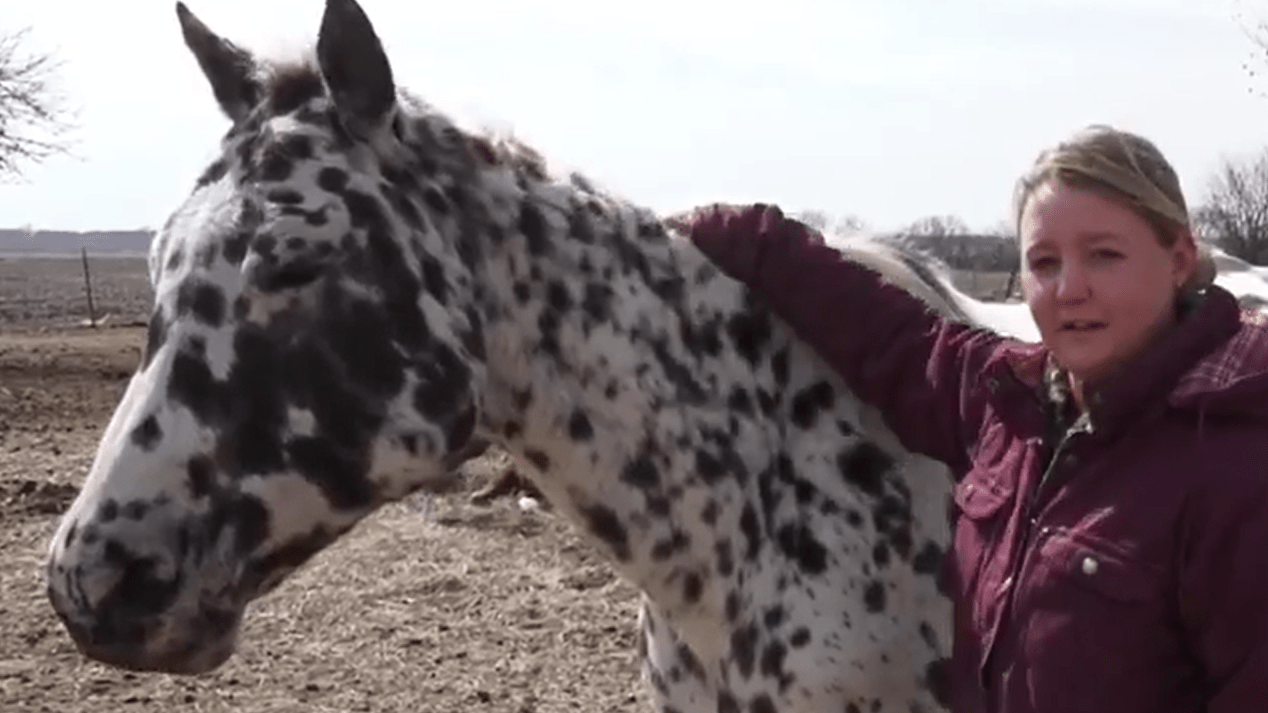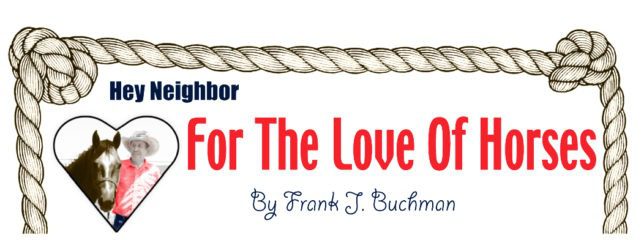One of the fastest ways to get horse owners’ tempers flared blood boiling heated discussion is horse slaughter.
Opinions vary the rampant extreme pro and con but fact remains horses are being slaughtered for human consumption.

Recent shutdowns with vast unemployment due to coronavirus would seem to further complex the issue.
Unbiased perhaps most logical overview of horse slaughter for human consumption comes from Dr. Courtney Daigle at Texas A&M AgriLife.
“The most important issue is to do the right thing for the animals,” declared the assistant professor of animal welfare.
“I’m not going to judge whether people should eat horse meat. That’s their choice,” Dr. Daigle emphasized.
“The rub is two-fold,” she insisted. “That is transportation of horses to packing houses and limiting options for horses which no longer have healthy useful lives.”
Horrendous stories widely circulated by animal humane groups indicate considerable mistreatment of horses for slaughter.
“Whatever the actual extent and handling of transported horses and at the plants, it must be monitored,” Dr. Daigle said. “Welfare of the animals has to always come foremost.”
What to do when a horse is unusable due to incurable health issues or old age becomes a complex issue.
Often recommended humane horse euthanasia and disposal can be financially and logistically impossible in certain instances.
Likewise, nutritional and management requirements for senior equines sometimes are an insurmountable burden.
“It is in the best interest of the horse to reinstate horse slaughter for human consumption in the United States,” Daigle said.
“Abolition of horse slaughter for human consumption eliminated one management tool needed to provide horses with good welfare,” she continued. “This legislative action has created an unwanted horse problem, and may result in horses being abandoned, abused, or neglected.
“Wildlife managers can no longer use horse slaughter as a means of non-native species population control,” Daigle informed. “This has resulted in overpopulation of feral horses like wild mustangs that are damaging the ecosystem to their own detriment.”
Temple Grandin, Colorado State University animal science professor, said, “Horse slaughter can be humane with proper transportation, facilities and management.”
Among groups supporting horse slaughter are organizations representing food animal industries such as cattle, sheep and hogs. They are concerned that banning any animal for slaughter will lead to outlawing all meat production.

In 2005, Congress voted to withhold funding for United States Department of Agriculture (USDA) inspections of horse meat.
However, new USDA rules allowed the slaughter houses to pay for the inspections themselves. A 2007 court ruling ordered the USDA to completely stop those inspections.
There has been no horse slaughter in this country since 2007, when three major equine packing plants closed. The slaughter houses, two in Texas and one in Illinois, exported about $42 million in horse meat annually.
According to Keith Dane, “About 100,000 live horses are still annually shipped to Canadian and Mexican slaughter houses.”
The Humane Society of the U.S. (HSUS) equine protection director indicated the meat is sold in Belgium, France, and other countries.
Still certain counts indicate slaughter horse shipments now are 85 percent below peak times decades ago.
“People around the world are not consuming as much horse meat,” numbers indicate.
It has been stated: “Horse meat is not safe for human consumption with all of the drugs given to horses.”
Horse organizations report lower registrations, but it’s hard to know how many foals are actually born each year. Population of horses is still considered high per capita.
Finding a market for a horse when an owner wants to sell it is not easy as years gone by.
However, Smith Horse Company at Peabody buys horses of all types on a regular basis.
Approximately 10,000 horses are purchased annually by the business and each one is given opportunity for return to productive lives.
The nearby Greenwood Stables and Equine Rescue are owned by Amy Bayes who operates it with her daughter Saje Bayes.
“We try nearly every horse there and sell those that can be used safely and productively,” Saje Bayes said. “We sell about 2,000 horses a year, and continue to have a waiting list for good useable horses.”
The horse company officials agreed there is strong demand for quality using horses at what many would consider high prices.
Although Greenwood Stables is a non-profit 501(c)(3) organization, little financial support is provided by donations. “We try to be self-sufficient,” the owner said.
Horses remain a commodity valued by the pound averaging about 45-cents depending on size, quality and condition.
Regular shipments are transported from Smith Horse Company to three horse slaughter plants in Mexico
Precautions are taken for proper management and care of the horses during transportation, it was assured.
There has not been a noticeable change in business at the Peabody unit with the coronavirus issue.
However, Dr. Daigle said more families may be forced to reduce their horse commitments in order to meet personal obligations.
While talk of opening U.S. plants to process horse meat for human consumption is ongoing, none are expected near term.
“That would require funding and legislation changes which I don’t foresee with the other issues at hand,” Daigle evaluated.
